PSA: You're Probably Recycling Wrong—Here's How to Fix It
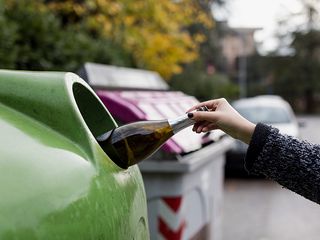
You might think you're doing your part to help the environment by recycling at home, at work, and when you're on the go. And while that's true, how you're recycling is the thing that's going to make a really big difference. That's because the more you recycle things that aren't supposed to be recycled, the more it's going to cost your city or local government, who normally picks up the tab for recycling services.
As recycling costs are going up, so too is the number of recyclables, and it's causing an overload for cities and municipalities. According to a New York Times article, cities are curbing their recycling programs due to cost or sending recyclables to landfills. Philadelphia burns half of its recycling materials, which converts waste to energy, and the city of Deltona in Florida has suspended its curbside program altogether. In 2018, China stopped importing "foreign garbage" and banned types of plastic and paper—which has created problems because many of our recycled materials were being sent to China. According to an article from the Yale School of Forestry and Environmental Studies, local governments and recycling processors are scrambling to find new markets to send their stockpiles of recyclables.
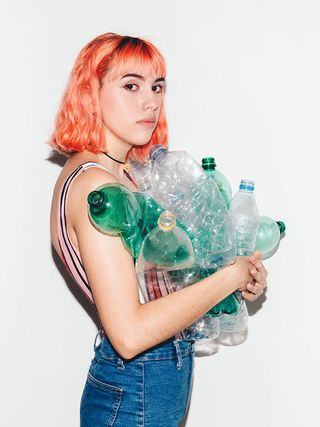
While the topic of recycling is very intricate and complicated, and frankly too much to get into in this article, for all of us just looking to keep our planet healthy, one of the most important things to do when we're recycling is know what can be recycled.
According to the Environmental Protection Agency: "Putting items in the recycling bin that can't be recycled can contaminate the recycling stream. After these unrecyclable items arrive at recycling centers, they can cause costly damage to the equipment. Additionally, after arriving at recycling centers, they must be sorted out and then sent to landfills, which raises costs for the facility."
We rounded up a few recycling tips to help—while this isn't a definitive list, it's a start. And it's important to note that the best way to ease the recycling problems all over is too minimize your waste and consumption. The less you have to recycle, the better that will be. Trying to live more sustainably takes some effort, but it's very rewarding.
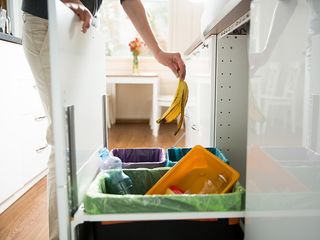
What can and can't be recycled depends on where you live, so check your city's rules. You'll want to avoid throwing away things you think can be recycled because it might cause more problems. According to Waste Management, when non-recyclables make their way into a bin, that leads to contamination, which will increase the cost to process recyclables.
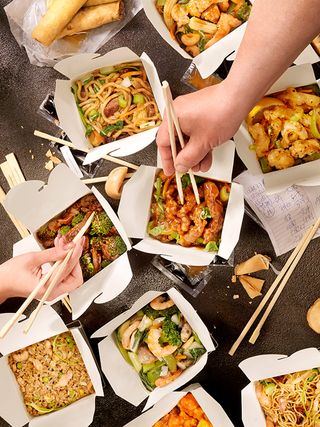
If you can recycle things like takeout containers in your city, rinse them and make sure all the food scraps are gone. A New York Times article says that dirty containers are a contamination culprit, which could lead the load to be sent to a landfill. And if your pizza box is super greasy, that can't be recycled either. Global Citizen suggests tearing off parts of the box that are dirty and recycling the rest.
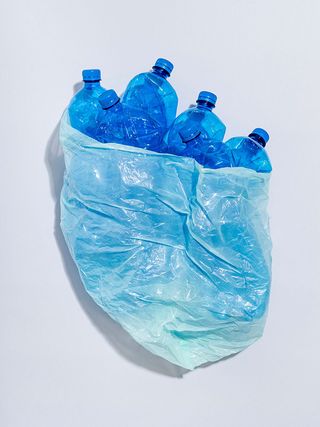
You might use a plastic bag to store all your recyclables. If you do, when you're ready to drop it all off in the bin, empty the plastic bag. The bags can clog equipment at the recycling facility, some cities don't allow plastic bags to be recycled, and some centers allow it if they're bundled together. Again, this depends on where you live, so make sure to double-check.

This is in line with tip number two, and it all comes down to contamination. Waste Management says, "When foods or liquids are placed in a recycling container, they will ultimately saturate tons and tons of otherwise good paper and cardboard that they come into contact with." The paper and cardboard will lose its quality and might not be able to be recycled.
This is the same for food waste, too. Avoid recycling items that contain food on the containers.

For hazardous materials, check to see what the rules and resources are for recycling such waste and the containers it's in.
For electronics, you don't want to put them in the recycling bin with your other plastics and paper, you'll need to take them to a facility that will accept them. Some places like Best Buy have e-waste recycling programs in store.
How to Reduce Your Recyclables
If you're looking to reduce your carbon footprint and have fewer recyclables, investing in some reusable, sustainable products can help. Take a look at some of our favorites below.
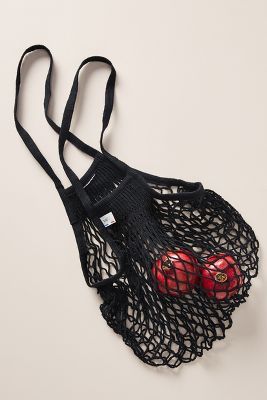
Take this to the grocery store or farmers market, instead of getting a paper or plastic bag. You'll look like a chic French girl, too.
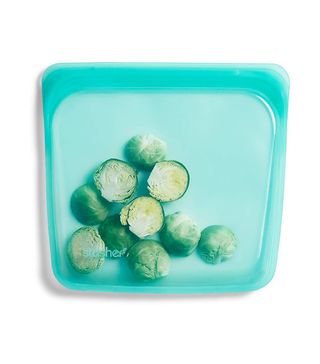
You might go through a lot of plastic zip bags for your sandwiches, snacks, and more. The Stasher bag is BPA-free, and microwave- and dishwasher-safe.
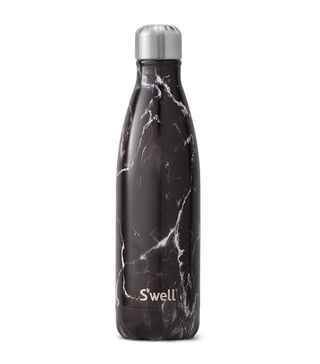
Ditch the plastic water bottles (and save some money at the same time) with a reusable version.
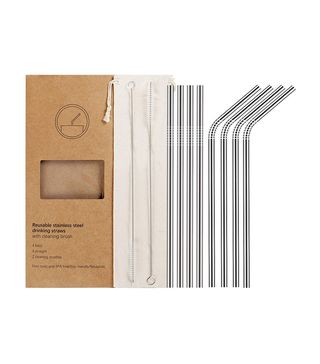
With many cities banning plastic straws, you can get one step ahead and stock up on some reusable straws. These are metal, but there are also silicone ones, too.
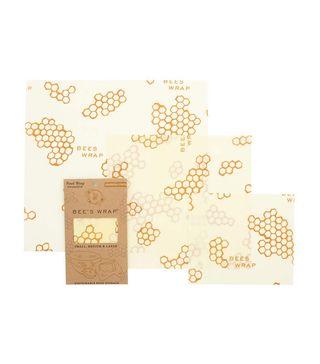
Instead of using plastic wrap, try reusable beeswax food wraps. This one from Bee's Wrap is made from organic cotton and infused with beeswax, jojoba oil, and tree resin. All you need to do is wash with soap and water and dry to reuse.
Next up: 21 Easy Swaps for a More Sustainable Home
Disclaimer
This article is provided for informational purposes only and is not intended to be used in the place of advice of your physician or other medical professionals. You should always consult with your doctor or healthcare provider first with any health-related questions.
Sarah is lifestyle writer and editor with over 10 years of experience covering health and wellness, interior design, food, beauty, and tech. Born and raised in Los Angeles, she attended New York University and lived in New York for 12 years before returning to L.A. in 2019.
In addition to her work on THE/THIRTY and Who What Wear, she held editor roles at Apartment Therapy, Real Simple, House Beautiful, Elle Decor, and The Bump (sister site of The Knot).
She has a passion for health and wellness, but she especially loves writing about mental health. Her self-care routine consists of five things: a good workout, “me” time on the regular, an intriguing book/podcast/playlist to unwind after a long day, naps, and decorating her home.